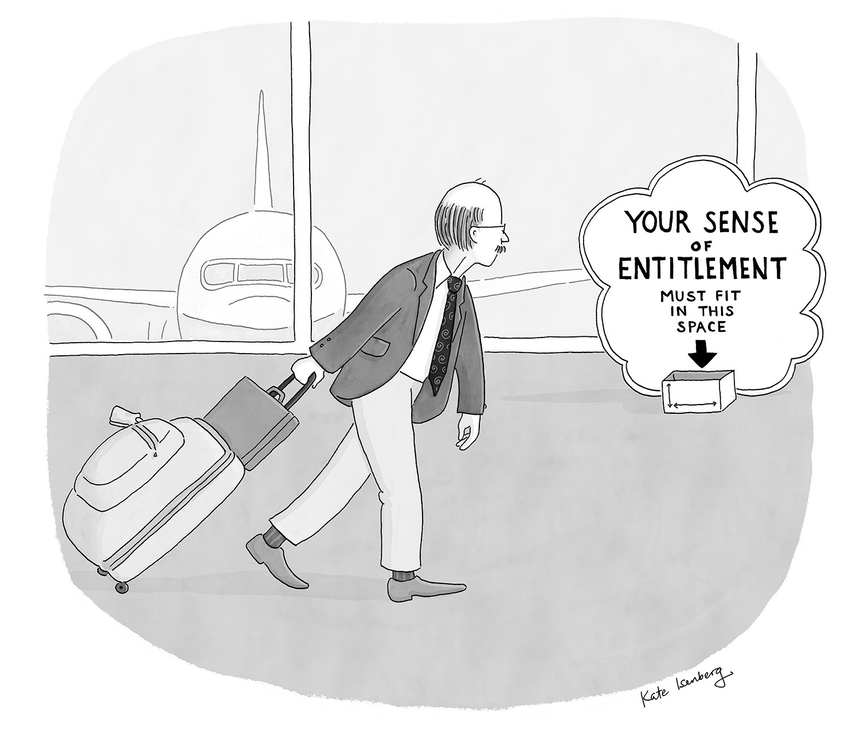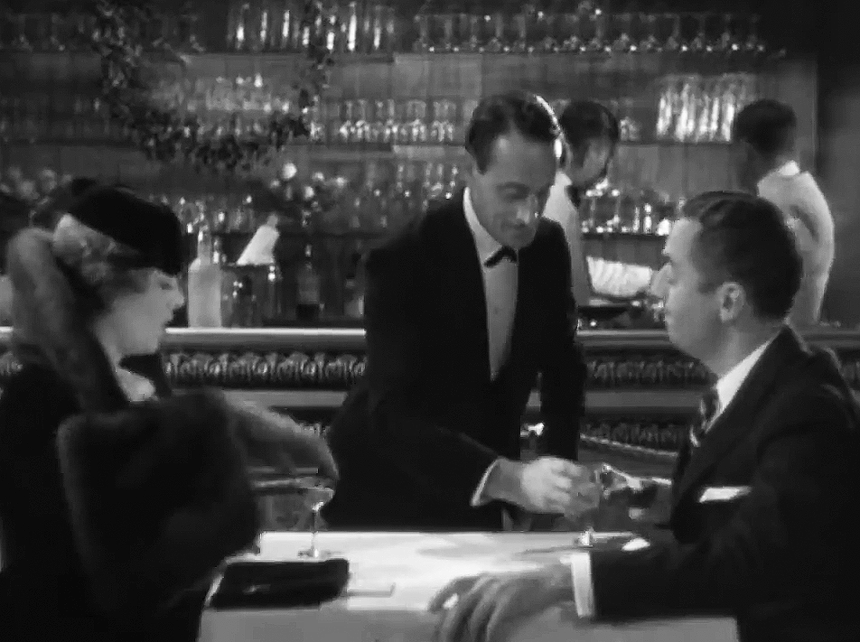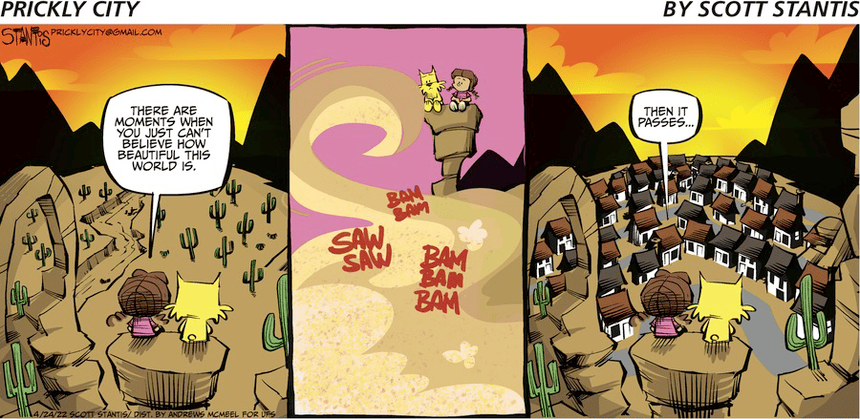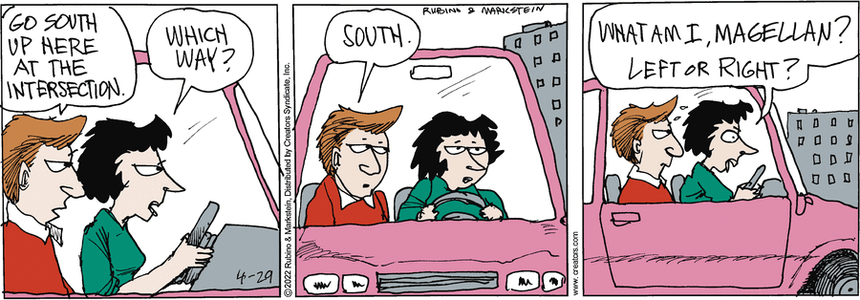CSotD: Lemme Give You A Tip
Skip to comments
We’re avoiding politics today, but that doesn’t mean unbridled frivolity. Betty (AMS) brings up a thorny question, which is how to be fair to workers without encouraging predatory management?
Before we were bullied by card readers, hopeful counter help put out tip jars. You still see those, but now that nobody carries cash anymore, there’s little change to put in.
And there shouldn’t have to be.
The first time I encountered one of these tip-option card readers, I was about to schlep two bowls of chowder to a table myself because the place didn’t have waiters. I had a lot of trouble erasing from my mind the idea that a tip is a reward for service, of which putting two bowls on the counter didn’t seem like much.
Ditto, here, with bagging a donut, and moreso, since, at the grocery store bakery, I bag my own.
Which gets into that holier-than-thou issue of people who routinely use ATMs instead of tellers and pump their own gas instead of having a mechanic do it for them, but then pee their pants over the more recent option of scanning their own groceries.
“Then why don’t my groceries cost less?” I dunno. Why did banks stop paying interest? Why isn’t gas still 33 cents a gallon? Who put the bomp in the bompabompabomp?

They’ve long since caved in to automation, as did their parents, since there was a time when you didn’t take things off the shelf because a shop girl was employed to do that for you. There’s a fascinating consumer/labor history behind that, but f’sure nobody ever tipped them.
Voluntarily paying more should be a personal interchange between the customer and a particularly helpful, attentive waiter, cab driver, red cap or whoever.
The moral issue is that, if I start tipping your counter help, am I simply allowing you to rip them off with lousy wages? The answer is yes, but they have rent to pay, plus, if they were paid a living wage, how much more would that donut cost?
It is a puzzlement.

I mentioned “red caps” earlier, and I suppose a lot of people don’t remember when someone would take your bags when you arrived at the train station or airport, and Kate Isenberg notes what a damn lousy job some people do of hauling their own.
Having traveled to conferences, I know the necessity of clinging to the essentials on the way there, but, even so, you can check your bags on the way home because then it no longer matters if they go walkabout.
So even Big Important People traveling on Big Important Business only need to be pains-in-the-aisle half the time, and please don’t tell me that the people lugging their sense of entitlement onto the plane and struggling to fit it into the overhead bin are all carrying handouts for a Very Important Convention Address.
Meanwhile, I don’t know if airlines still send lost baggage to your house by cab because they don’t lose it nearly so often as they used to, but, if so, yes, you tip the driver.

The Playboy Advisor aspect of all that, BTW, was that it is gauche to visibly tip, and a cool guy should slip someone a reasonably sized bill discreetly. The distaff side is that cool girls notice but appreciate it with similar discretion.
I’m so old I remember elegance. And when martinis were gin by default.

Fi and Dethany address the changing world of business in On the Fastrack (KFS), and I’ve seen one of those “If You Lived Here, You’d Be Home” billboards fairly recently, on the highway from Peebiddy, Mass., to the North Shore.
I spent my last decade in the workforce about 2,000 miles from the office. Twice a year, I’d get a haircut, buy some new clothes and fly out to Colorado, so going into the office felt like a vacation.

Except that, as seen in this Prickly City (AMS), the vacation spot I’d left in 1987 was long gone by the time I signed on with the Denver Post twenty years later. In fact, when I left, Californians had just started moving in, happily paying California prices that skyrocketed local housing costs, and just as cheerfully enduring commutes that nobody in the Rockies would have tolerated, which encouraged sprawl.
Going back was a Rip Van Winkle experience, because, in my absence, they had filled in all the empty places between Boulder and Colorado Springs, and, like Carmen and Winslow, those empty places were the parts I loved the most.
I kinda wish I’d just kept working at home and had never seen it.

And, by the way, Daddy’s Home (Creators) brings up one of the truly wonderful things about living on the Front Range, which was that when someone who had mistaken you for Magellan gave you a compass point instead of a useful direction, you were always in sight of the Rockies, which provided orientation.
Or, I guess, occidentation.
Others have spoken of living by the ocean or one of the Great Lakes, but those don’t stick up eight thousand feet above the surrounding landscape, or, at least, you’d better hope they don’t.
In Colorado, by the time you’re out of sight of the mountains, you’re halfway to Kansas and hopelessly lost anyway.

Wallace the Brave (AMS) reminds me of my own time playing right field like Spud. As noted in the song, right field was, for a long time, my spot.

My problem was lack of depth perception, which meant I knew when the ball was coming but not precisely where, so admonitions to choke up on the bat were the opposite of what I needed. Once I held it at the knob like my hero, Norm Cash, my odds of finding the ball increased proportionately with bat length and I started hitting regularly if not well.
I also moved to third base, putting my glove hand in fair territory while the shortstop snagged what I couldn’t reach.
In keeping with today’s theme, here’s a tip: Lee Judge is a cartoonist who knows how baseball works, or ought to, and is even funnier when it doesn’t.

Lee explains it here for all the little Wallaces and Spuds.
Comments 21
Comments are closed.